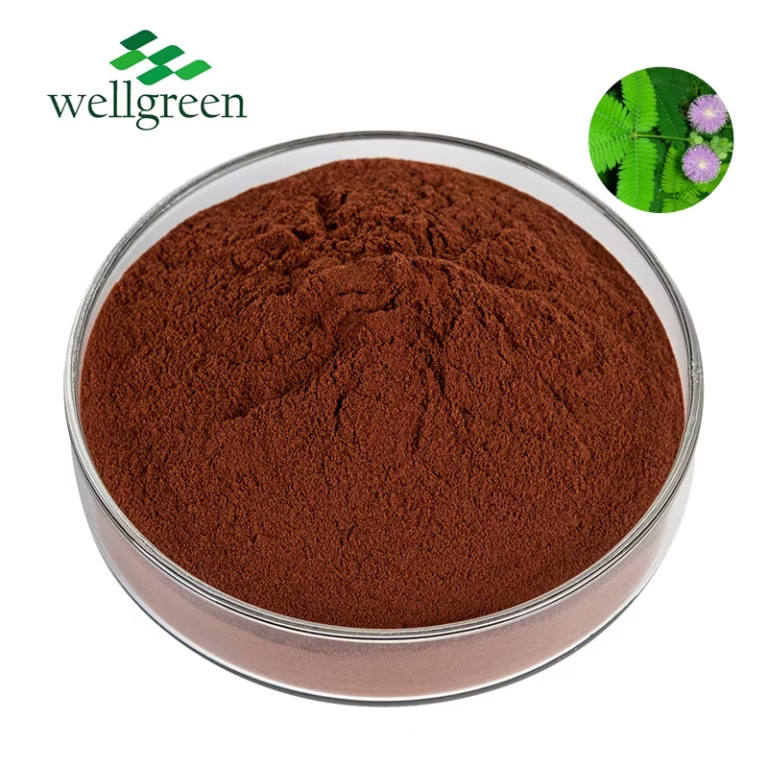
The branches of this Amazonian plant, commonly known as quebracho blanco, have been used for time immemorial in traditional medicine across South America.
Ethnobotanical studies highlight the effectiveness of M. tenuiflora extracts in treating a wide range of ailments, including inflammation.
Indigenous practitioners employ the plant material in multiple forms such as powders to address conditions.
Some key uses of M. tenuiflora encompass antimicrobial activity, and it is also regarded to possess anti-inflammatory properties.
Comprehensive Profiling of Mimosa tenuiflora Root Bark Extracts
This study focuses on investigating the phytochemical profile of Mimosa tenuiflora root bark extracts. The procurement methods employed involved diverse solvents, including methanol. The resultant extracts were then subjected to a battery of analytical methods such as thin-layer chromatography (TLC) to identify the predominant phytochemical molecules. Preliminary results reveal the presence of a diverse of secondary metabolites, including terpenoids, which are known for their therapeutic properties. This comprehensive phytochemical analysis aims to provide valuable insights into the potential of Mimosa tenuiflora root bark as a source of herbal remedies.
Traditional Uses and Potential Medicinal Benefits of M. tenuiflora Root Bark
M. tenuiflora, a tree renowned for its unique root bark, has been used in traditional medicinal practices for centuries. Indigenous tribes have long recognized the healing properties of this valuable substance. The root bark is traditionally prepared and applied to alleviate a variety of ailments, including infections.
Contemporary research is initiating to uncover the efficacy of M. tenuiflora root bark in providing medicinal benefits. Studies have revealed that certain constituents present in the bark may possess anti-inflammatory properties, contributing its potential to fight a broad array of diseases. Moreover, preliminary research suggests that M. tenuiflora root bark may also possess brain-boosting effects, though more extensive studies are required to confirm these findings.
Pharmacological Activity of Mimosa tenuiflora: A Review of Root Bark Studies
Mimosa tenuiflora, commonly referred to as the jurema tree, has a profound history of folk medicinal use in South America. The root bark of this species is particularly valued for its diverse pharmacological properties. Numerous investigations have analyzed the potential actions of M. tenuiflora root bark, revealing a range of compounds with promising biological activity.
- One area of particular focus is the anti-inflammatory efficacy of M. tenuiflora root bark extracts.
- Preliminary findings suggests that these preparations may modulate the inflammatory response, potentially providing relief from multiple inflammatory ailments.
- Moreover, studies have demonstrated that M. tenuiflora root bark may possess cellular protective properties, which could contribute to human health by counteracting oxidative damage.
The complex nature of M. tenuiflora root bark profile and its possibilities for therapeutic treatments warrant further exploration. As research continues, a more comprehensive understanding of the pharmacological activity of M. tenuiflora root bark may emerge, potentially leading to the development of novel and effective therapeutic interventions.
Procurement and Analysis of Bioactive Molecules from *M. tenuiflora* Root Bark
This research focuses on the extraction of medicinal molecules from the root bark of *M. tenuiflora*. Several extraction methods, utilizing solvents, will be utilized to isolate a variety of extracts. The characterization of these extracts will involve assays like mass spectrometry and molecular characterization. The therapeutic effects of the isolated molecules will also be assessed using in vitro systems.
This project seeks to identify and characterize promising molecules from *M. tenuiflora* root bark with potential benefits in healthcare.
Examining the Anti-inflammatory and Antioxidant Properties of Mimosa tenuiflora Root Bark
Mimosa tenuiflora, commonly known as the Siberian tree, is a shrub native to south american regions. Recent research has focused on its {potentialapplications for human health, particularly concerning its immunomodulatory and antioxidant properties. The root bark of read more Mimosa tenuiflora is a rich wellspring of bioactive constituents such as flavonoids, which have been shown to exert potent effects against oxidative stress.
- Studies have demonstrated that extracts from Mimosa tenuiflora root bark can potentally reduce the production of inflammatory mediators in both *in vitro* and *in vivo* models.
- Furthermore, these extracts have exhibited notable protective effects by eliminating harmful free radicals, protecting cells from dysfunction.
These findings suggest that Mimosa tenuiflora root bark holds promise as a {naturalsupplement for various inflammatory and oxidative stress-related conditions. However, further research is needed to fully elucidate its mechanisms of action and optimize its therapeutic potential.
